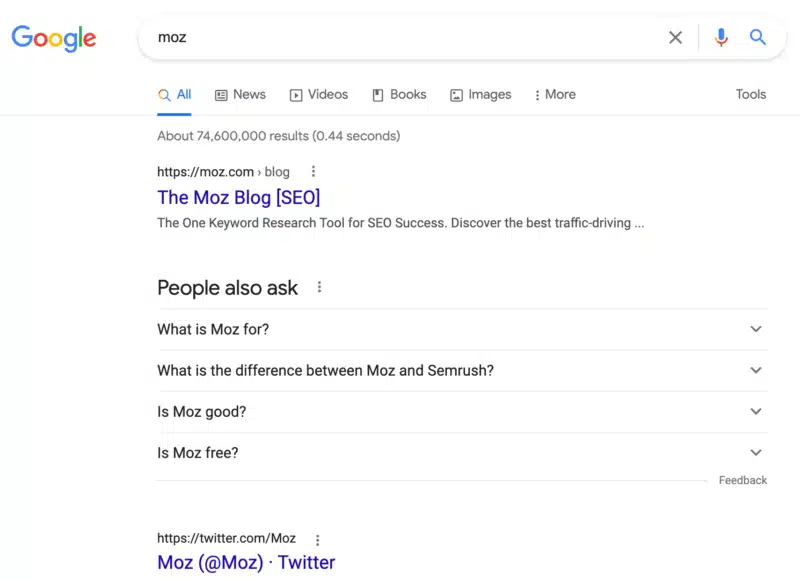DMCA request removes Moz from Google Search index
This shouldn't happen, but it did - and that is scary.
If you search for [Moz] in Google Search, you won’t be seeing the moz.com home page, that page was removed from the Google index due to a DMCA takedown request. The takedown complaint cites that Moz’s home page, along with 185 other URLs were “distribute modified, cracked and unauthorized versions” of the Dr. Driving app.
The takedown complaint. The DMCA, The Digital Millennium Copyright Act, takedown complaint can be viewed over here. You can see the Moz home page listed on line 122. As Cyrus Shepard posted on Twitter “Crazy! You can’t access the Moz homepage from Google right now. A search for “Moz” shows an incredible 8(!) removed results from an overly-broad DMCA filing. DMCA literally lets anybody abuse the system, and it breaks Google.”
Google is aware. Danny Sullivan, the Google Search Liaison responded saying “I’ve passed it on for review.” We suspect Google will reverse this issue really quickly – but so far, Moz is still not showing.
The Google search results. Here is a screenshot of the search results page showing the Moz blog coming up in the first position, not the Moz home page:

The footer of the Google results show that Google “removed 8 result(s) from this page” due to DMCA violations:

Should not happen but it does. You are all probably thinking, this should not happen – how can Moz not rank for it’s own name in Google Search. How can it be that easy for someone to use a DMCA request to take down a large respected brand from showing in the Google Search results? And you are right, this should not happen – but it does.
We had our own site, Search Engine Land mistakenly removed from Google because Google thought the site was hacked – it was not hacked. Digg was also removed from Google Search because someone accidentally classified it as spam.
I guess mistakes happen, even in massive companies. But how? We don’t know yet. We have reached out for Google for a statement and if we hear back, we will update this story.
More on DMCA requests and Google Search. Google has its transparency report that says “It is our policy to respond to clear and specific notices of alleged copyright infringement. The form of notice we specify in our web form is consistent with the Digital Millennium Copyright Act (DMCA) and provides a simple and efficient mechanism for copyright owners from countries/regions around the world. To initiate the process to delist content from Search results, a copyright owner who believes a URL points to infringing content sends us a takedown notice for that allegedly infringing material. When we receive a valid takedown notice, our teams carefully review it for completeness and check for other problems. If the notice is complete and we find no other issues, we delist the URL from Search results.”
You can dispute these requests and have them reversed but how long does that take? You can submit DMCA requests to Google over here.
Why we care. This is a nightmare for most SEOs and site owners. To be removed from Google Search for your branded term. It should not happen, it is really inexcusable and sad to see but it did happen.
I am sure Moz will return shortly but there is really nothing we can say on how to prevent this from happening to your site. The good news, Moz is a big enough brand that this caught Google’s radar quickly and likely will be fixed soon because of that. But for small brands – good luck.
Postscript. Moz is now back, less than 12 hours after this issue was first reported here:

Statement from Google. May 5th at 6:50pm ET a Google spokesperson sent us the following statement:
Our DMCA removals process aims to strike a balance between making it easy and efficient for rightsholders to report infringing content while also protecting open access to information. If we find that pages have been removed from our results in error, we reinstate them, which we did in this case. Our transparency efforts are designed to help third parties identify these types of issues, and when they come to light, we take action. We’re looking at ways we can improve our systems and processes to prevent these types of errors in the future.
Related stories